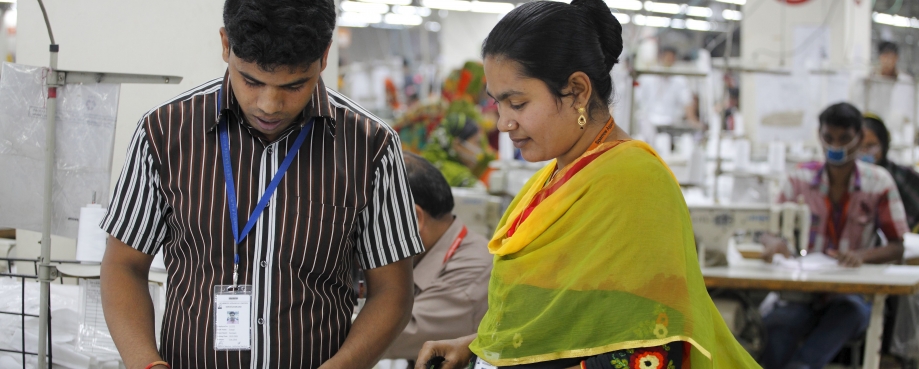
Amidst growing international concerns around Bangladesh’s clampdown on trade unions in the country’s garment sector, and following discussions with its member companies, the Ethical Trading Initiative (ETI) originally withdrew from the Dhaka Apparel Summit taking place on 25th February. But, following the release of the jailed trade unionists on 24 February will now be speaking at the summit.
THIS STATEMENT WAS UPDATED AT 10:45 AM GMT SATURDAY FEBRUARY 25
Given the news that the 35 Bangladeshi unionists and garment workers arrested since December last year have now been released, ETI representatives are attending the Dhaka Apparel Summit and our Executive Director will be speaking at the event.
Original statement follows below
ETI and its members have watched with increasing concern the series of arrests and worker lockouts in Dhaka’s Ashulia industrial area in December 2016 and the more recent arrests in Chittagong.
Now, following what appears to be an increasingly hard-line response by the authorities and some industry members, ETI feels it has no choice but to withdraw from the Dhaka Apparel Summit 2017. ETI members C&A, H&M, Inditex, Next and Tchibo have also confirmed that they will not attend.
Additionally, ETI members have been pressing government contacts and industry representatives to withdraw charges against wrongly jailed unionists.
Peter McAllister, ETI’s Executive Director said: “ETI recognises the importance of the Apparel Summit to the future of the ready-made garment sector in Bangladesh. Unfortunately, the current intimidation of workers and their representatives is at odds with a progressive industry looking to secure the sustainable development of the sector.”
ETI has not taken the decision to withdraw lightly. It has consistently sought to support the progress of the Bangladesh garment and textiles industry towards a vision of increased value of exports. But, it believes this can only be based on profitable businesses that support decent employment for workers whose rights are respected.
ETI’s Base Code of labour standards is very clear about the rights of workers to unionise and bargain collectively for a living wage. Peter McAllister said that the second of ETI’s nine codes of conduct recognised that “workers, without distinction, have the right to join or form trade unions of their own choosing and to bargain collectively and that their representatives are not discriminated against”.
Peter McAllister hoped that the Bangladesh Garment Manufacturers and Exporters Association (BGMEA) and the Bangladesh Apparel Exchange (BAE) that are organising the summit will listen to the concerns expressed by international retailers, ETI and others and reach out constructively to unions.
While acknowledging that workers and their representatives have obligations and responsibilities that are covered by the law, Peter McAllister asked that all concerned with the dispute now “enter into good faith dialogue so that the success of the industry can be built on good industrial relations.”
Even though ETI is withdrawing from the conference, Peter McAllister will still visit Bangladesh to meet with partners, officials, BGMEA and key members of the diplomatic community to share its concerns.
ENDS
Released by ETI External Relations Team on +44 (0)20 7841 4350 or +44 (0)7972 053624
The image at the top of the page is courtesy of the ILO and is for illustrative purposes only. It does not refer to the current story.
